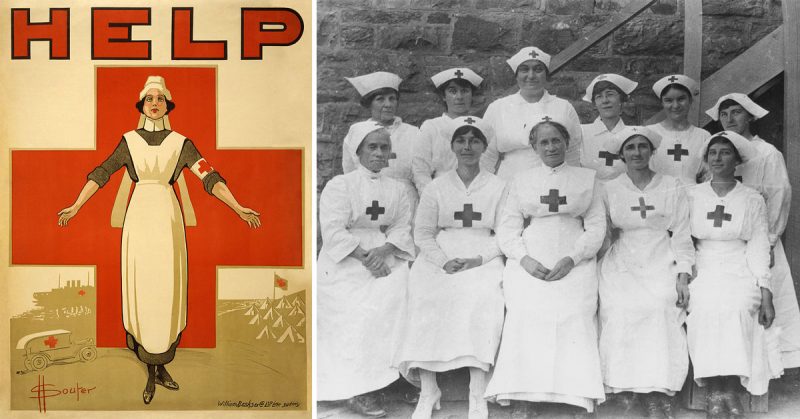For hundreds of years, women have served different roles inside and outside of the home; it may surprise you to learn that the same is true of their role in times of war.
Women have always played a part in wars, whether as nurses, cooks, or homemakers. It was not until recently, however, that historians have started to seriously research the tasks asked of women during war. Diaries and letters written by nurses in World War I show that women not only had the job of medical nurse, but also that of confidante, friend, and comforter.
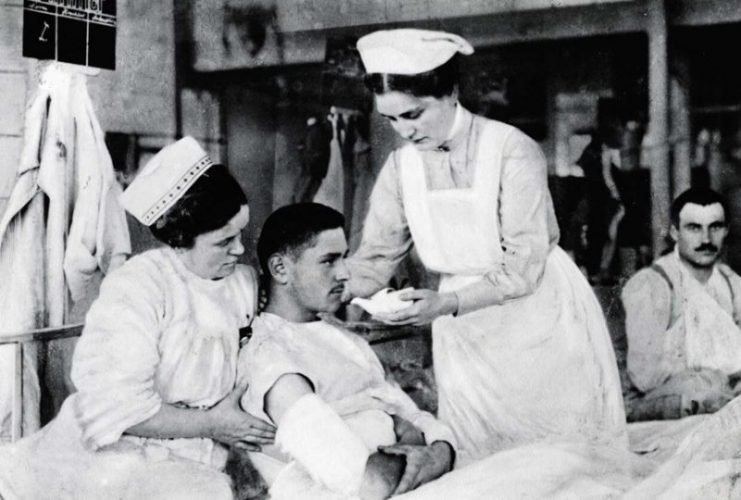
Up until and even during World War I, women were relegated to traditional functions such as those of mother, home-keeper, and nurse. They were not expected to be leaders or managers. However, the women who entered the war as nurses would actually end up playing a much larger role than one would think.
Women almost always entered the war alone. For the most part, they only had other nurses as friends and companions. They left their families and friends at home and entered the war knowing nobody. The nurses relied on each other as anchors and support. Once overseas, the women left behind everything they knew and were cut off from the outside world.
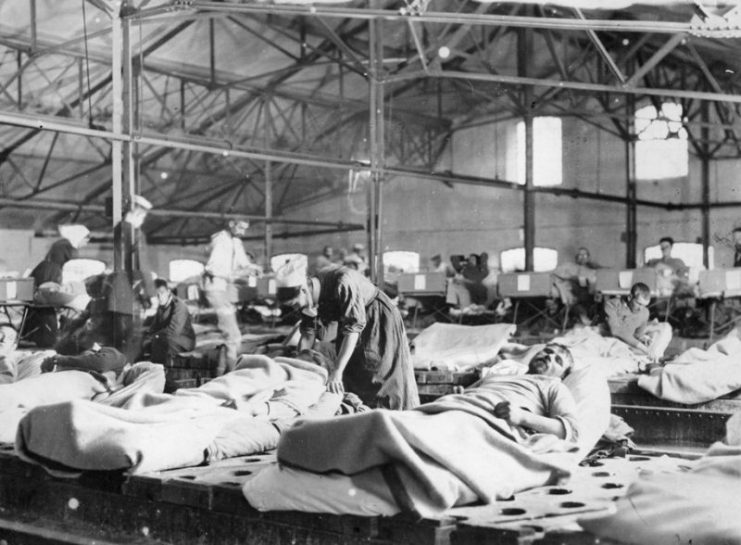
Women also formed bonds with the soldiers. The women spent all day in medical wards and infirmaries caring for injured men. They developed bonds with these men, telling stories from home and asking about their families.
When men would come in with wounds suffered in the trenches, they were at times embarrassed about being taken care of by women they didn’t know. The nurses developed bonds with these men in order to restore their confidence and decrease the suffering they were experiencing.
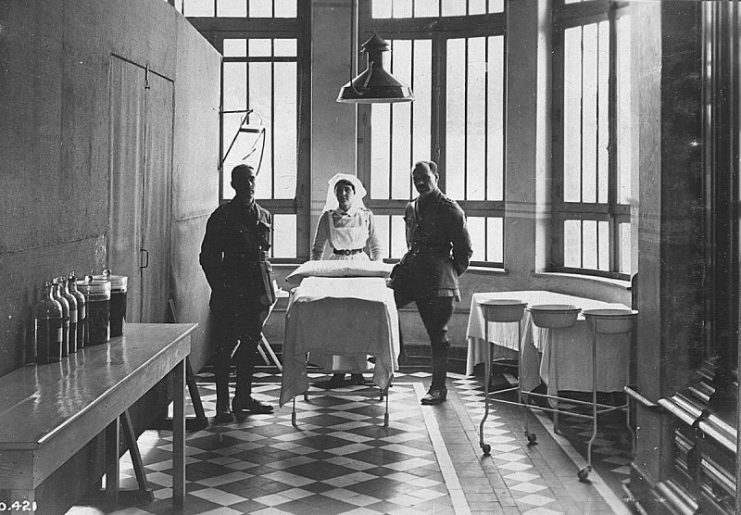
Of course, one concern for military leaders was that women would develop inappropriate relationships with the officers and soldiers. This was not as real a concern as the men had feared, however.
Women had been learning and living with the social boundaries set upon them by society their entire lives, and they carried these boundaries with them to war. Some of these women had families and husbands back home; others had husbands or fiancés in the war. They knew how to separate their emotional bonds with the soldiers they cared for from the relationships they developed in the real world.
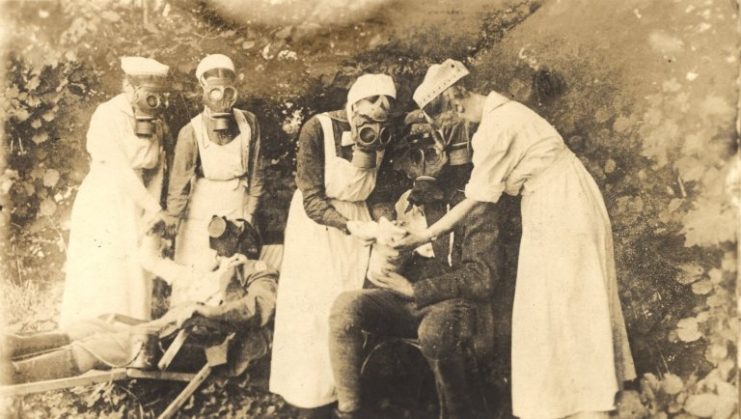
Nurses’ duties were not limited to treating wounds and administering medication. Many of the women who became nurses were natural managers. They had managed large estates or families back home and brought this skill with them into the hospitals.
The doctors could count on the nurses to make sure the infirmaries and hospital wards were run properly. This is not to say that women in the war only experienced hard work.
There was, of course, a natural social element to being on the front. World War I exposed these women to a whole new social environment. The soldiers would take them on excursions to foreign attractions. The nurses and soldiers would deepen their friendships outside of the hospitals. Both women and men needed to rely on each other for emotional support.
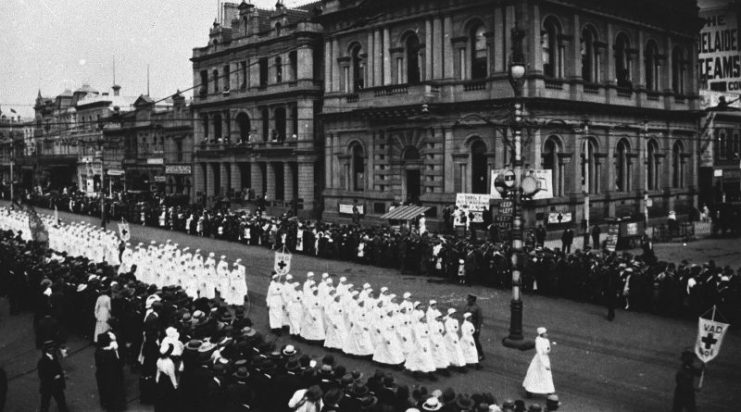
Friendships have always been a product of a person’s time and place; that is to say, they develop around the circumstances that people find themselves in. Most women who became nurses in World War I would not have grown up expecting to leave their homes and serve as military nurses. Many of them became nurses out of a sense of patriotism or the desire to do some good for their fellow man.
Women who had previously relied on other women for socialization and companionship were thrust into a new situation. They entered a world in which they needed to rely on their friends for camaraderie and emotional support to bear the burdens of war. It was also a world in which they would offer that same emotional support system for men they didn’t know.
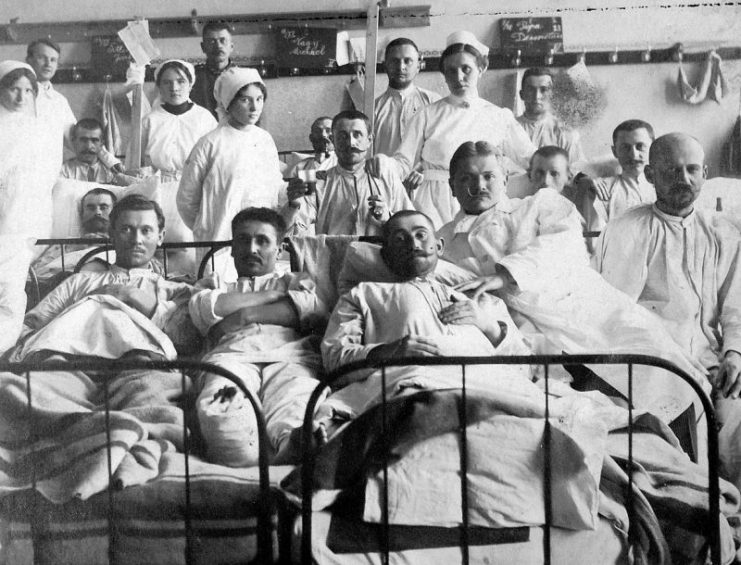
These newly-formed friendships between women and men would transition smoothly into the real world after the war. Women entered professions and positions that up until that point had been dominated by men. Although many would return from the war and resume their original roles as teachers, nurses, and housekeepers, more than a few would retain their autonomy.
Some became switchboard operators and telegraphers, but others would more boldly become mechanics, drivers, and even pilots. The relationships and friendships these women formed during the Great War established a solid foundation for their progressive acceptance into many areas of life traditionally dominated by men.
